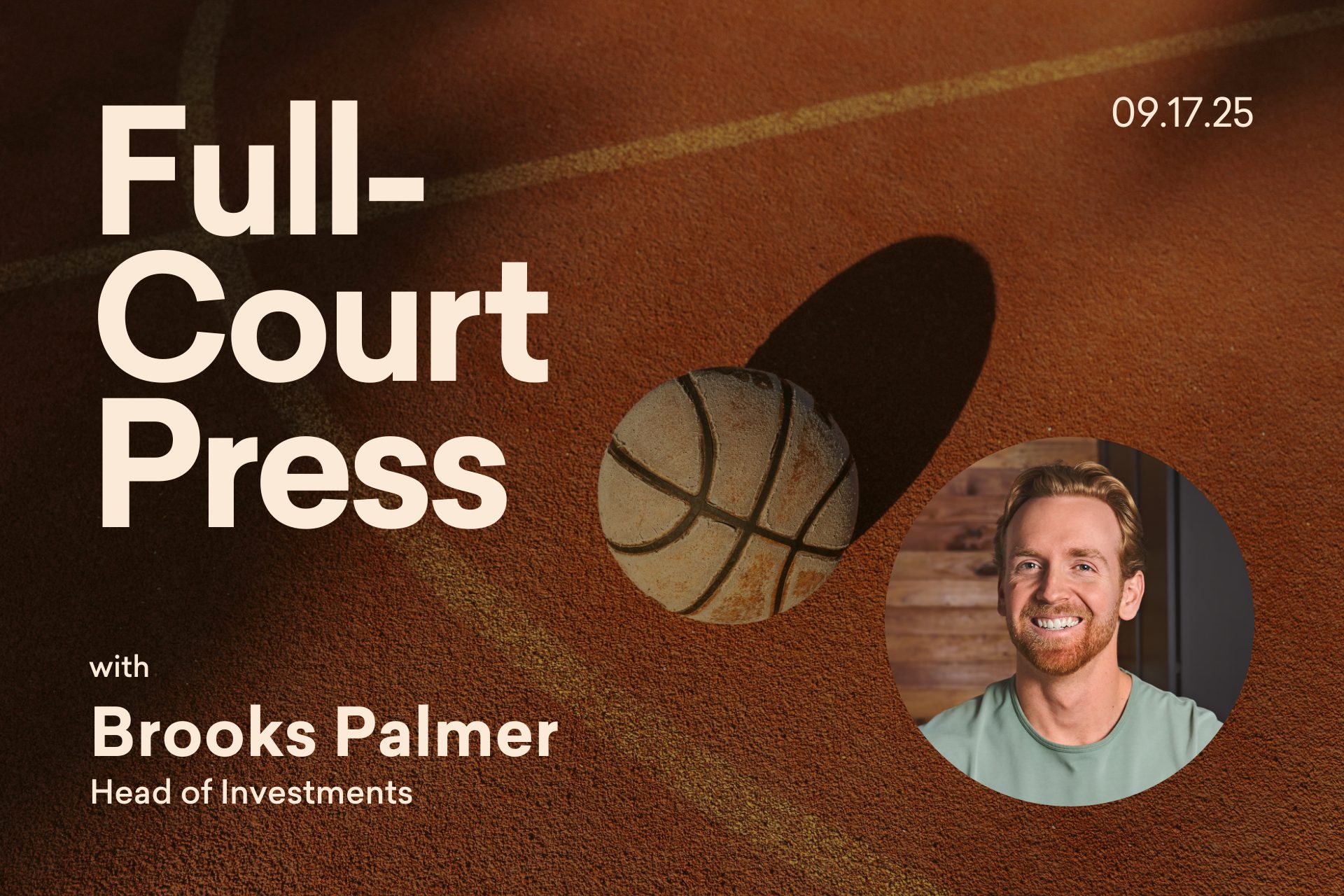Over the past few months, one of the most common questions we’ve heard is, “How will Root leverage artificial intelligence (AI)?” Rest assured, we won’t put our heads in the sand and hope it passes us by. For more than a year, we’ve been actively discussing how this technology can make us better planners, advisors, and investors.
This topic cropped up again this past weekend as I listened to an interview with Vlad Tenev, Robinhood’s founder and CEO, which prompted a broader question: if we reach artificial general intelligence (AGI) and these models prove even more capable than expected, as early as next year, how will we continue to play an important role in our clients’ lives? Will our work in helping clients make thoughtful, life-aligned financial decisions remain as essential as it is today?
Tenev spoke passionately about how Robinhood is reshaping finance and highlighted an AI model developed by him and his team which placed in one of the world’s premier mathematics competitions. Impressive, yes. But while financial planning has parallels to math—change one input and many outputs shift—life itself is not a math problem. There is no single right answer. There are only tradeoffs.
It seems that many tech wizards and engineers either gloss over or completely dismiss that this management of tradeoffs can be a deeply personal and often emotional exercise. I’ve seen plenty of elegant ROI calculations that ignore what we call ROH—Return on Hassle. And what about tradeoffs like simplicity vs. complexity, or liquidity vs. illiquidity?
Tradeoffs, Not Formulas
AI models may excel at solving equations, but financial decisions are rarely formulaic.
Take a client with a $16 million net worth, $15 million of which is in Apple stock. How do we manage that concentration risk?
- Use an Exchange Fund for immediate diversification? What about the 7-year lockup and the stocks received upon exit?
- Put on an options collar to cap upside and limit downside? What about reduced participation in the stock market?
- Use a long/short SMA to diversify over 2–3 years? What about the potential tracking error versus a benchmark index?
There isn’t a single “right answer.” Each choice involves tradeoffs—liquidity, opportunity cost, control, and potential outcomes.
Or consider planning questions:
- Should I execute a Roth conversion, and if so, when?
- How should I prepare for RMDs?
- What about IRMAA surcharges that may impact Medicare premiums in the years ahead?
Each decision ripples across tax planning, cash flow, retirement, and even healthcare.
The Role of a Tech-Enabled Advisor
Not everyone needs a financial advisor. Some have the time, discipline, and interest to manage on their own. But for those with substantial complexity, limited time, or little appetite for the finer points of financial planning, a skilled advisor may help clients see their choices more clearly. Not by offering up the perfect formula, but by helping clients navigate the tradeoffs inherent in every financial decision.
Ten to fifteen years ago, many folks in fintech predicted that robo-advisors spelled the end for human advisors. For some, the robos have been a fit. But many discovered that portfolio automation doesn’t address complexities like tax planning, retirement, business sales, charitable giving, or concentrated stock.
The same is true today with AI. It’s a powerful tool, but not a substitute for judgment. An advisor who uses AI to streamline the manual and mundane can enhance the focus on you–your goals, your hopes, your tradeoffs–and apply the experience, empathy, and first principles thinking that a model simply cannot. We believe advisors who thoughtfully incorporate AI may have more capacity to focus on client priorities and help illustrate the tradeoffs involved.
Of Course You Can
Fintech platforms may make access easier, just as Nestlé Toll House makes baking chocolate chip cookies easier. But access is not guidance. And just because you can bake a dozen cookies every night doesn’t mean you should.
Financial decisions always involve tradeoffs. And we’re at our best helping you navigate those tradeoffs so you can walk out into the world and get the most out of life with your money.
–
CONSIDER
Create a wish list for the year ahead: items, experiences, trips.
One of the best ways to get pleasure out of our money is to anticipate the spending of it. It starts to become a three-for-one:
- The period of anticipation
- Fully present during the experience
- A few pictures to remind you of the core memories
–
Let’s get after it this week!
Brooks
Brooks Palmer, CFP® is Head of Investments at Root where he helps identify, evaluate, and implement investment solutions tailored to clients’ needs. In Full-Court Press, he breaks down what’s happening in the markets—cutting through the noise and jargon—while connecting it to Root’s core investment tenets so you can make the most of your money and your life!
Advisory services are offered through Root Financial Partners, LLC, an SEC registered investment adviser. This content is intended for informational and educational purposes only and should not be construed as personalized investment advice or a recommendation to buy or sell any security. Any forward-looking statements, including expectations about market returns, are hypothetical in nature, do not reflect actual investment results, and are not guarantees of future performance. Any examples provided are for illustrative purposes only. Past performance is not indicative of future results.


